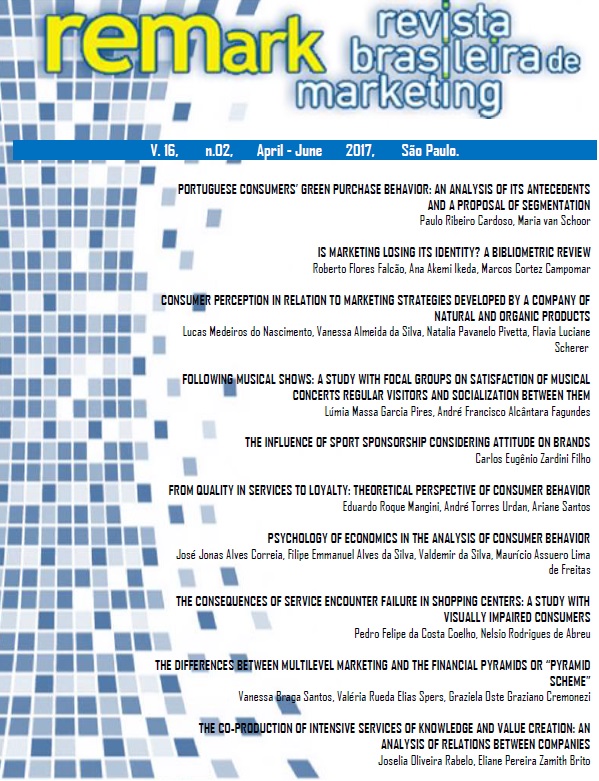Psychology of Economics in the Analysis of Consumer Behavior
DOI:
https://doi.org/10.5585/remark.v16i2.3470Keywords:
Economic Psychology, Consumer behavior, Superfluous consumer.Abstract
Psychology of Economics addresses issues far beyond market research. Thus, studies in this area also observe variables such as work, unemployment, decisions about purchases and savings, investments, financing, responses to advertising, among others. The present research was carried out with the objective of analyzing, through the fundamentals of consumer behavior, its relation to the propensity for compulsive or superfluous consumption. This quantitative study relates, using as means of phenomena and variables a description of the consumers behavior through the statistical tool Propensity Score Matching of Stata software. A semi-structured questionnaire was used to collect the data, which was applied online from April to August in 2016. Data analysis was performed by the Ordinary Least Squares (OLS) regression with controlled dummy variables (dependent variable, whether or not it belongs to the consumer group Compulsive) by the set of explanatory (independent) variables. The results showed that the average monthly spending of compulsive consumers increases, and the higher the income of individuals, the greater the spending on unnecessary or superfluous consumption. Considering the gender variable, male individuals have higher levels of unnecessary spending and are prone to superfluous consumption. Thus, consumption is composed of influences for purchase and that the consumer determines consumption, according to economic position (income factor) and cultural factors (customs, needs, impulsivities) within the society.
Downloads
Downloads
Published
How to Cite
Issue
Section
- Abstract 2799
- PDF (Português (Brasil)) 2671









